How to get a good deal on solar + batteries in 2025
Tax credits are going away... So how do homeowners take advantage of them before they're gone forever?
Author - Dustin Larson
9/27/20254 min read


Investing in solar panels and a battery backup system is one of the smartest decisions a homeowner can make. Not only does it reduce your reliance on the grid, but it also protects you from rising utility rates and power outages. Still, it’s a big investment — and nobody wants to overpay.
If you’re wondering how to get the best deal on solar panels and battery backup, here’s what you need to know.
1. Take Advantage of Incentives & Rebates
This is where huge savings come in. Currently, homeowners can claim the 30% Federal Solar Tax Credit (ITC), which applies to both solar panels and battery storage systems. But these tax incentives are going away at the end of the year! So if your project is not installed by 12/31/2025 then you do not get to claim the credit.
A little known fact is that many homeowners do not qualify for these tax credits in the first place. Misleading sales tactics have brought massive lawsuits against major solar companies. They have been accused of misleading homeowners into believing that they will receive a check in the mail for the tax credit. This is completely false. A tax credit only reduces the amount of taxes you owe, it is NOT a tax REFUND.
The main issue we have with this, and part of why we started our company is because its incredibly dishonest. This poisons public perception of the entire industry. We've made it our mission to dispel these myths and educate homeowners about the reality of the situation.
On top of that, we have found an elegant solution for homeowners to benefit from the tax incentives before they expire. We have partnered with a third party company that will purchase your tax credit and in return they will pay for 30% of your system up front. This guarantees that homeowners benefit without the risk of possibly not getting the tax credit. This also creates a cascading positive effect on the entire projects bottom line cost. because if your reduce the amount that a homeowner needs to finance from the start, then the amount of interest paid over the term of the loan is greatly reduced also. This creates massive savings compared to other options. Yeah, it's pretty awesome!
2.Know What You’re Paying For
Solar pricing can be confusing. When you receive a quote, you’re not just paying for panels — you’re also paying for:
Solar panels (the hardware that generates electricity)
Inverters (convert DC power to usable AC power)
Battery backup system (like Tesla Powerwall or Eg4 batteries)
Installation and labor
Permits and inspections
A low price might sound attractive, but if the system uses lower-quality equipment or lacks solid warranties, you could end up spending more in the long run.
3. Compare Multiple Quotes
One of the best ways to save is to shop around. Request at least two to three quotes from local solar companies. When comparing, don’t just look at the bottom line — review:
Equipment quality (are they Tier 1 solar panels?)
Battery storage capacity (not all batteries are created equally.)
Warranties on panels, inverters, and batteries (some may cover parts, but not labor. read the fine print!)
Installer experience and certifications
The cheapest bid isn’t always the best deal — value comes from quality, reliability, and long-term savings. (Read reviews and ask for references.)
4. Consider Financing Options
Not every homeowner pays cash upfront. The right financing can make solar much more affordable. Options include:
Cash purchase (highest savings over time)
Solar loans (own your system with low monthly payments)
Leases or PPAs (but you don’t own the system, usually cost increases over time which reduces total savings.)
Loan + refinance (this is the combination of two things. First you get a normal solar loan and have the system installed with $0 down, second you refinance your home and add your new solar system into the value of the home to pay off your solar loan. This can make the total cost of your system INVISIBLE and so cheap it's basically free.)
Ask each installer to explain the long-term cost of financing. Sometimes the lowest monthly payment ends up being the most expensive option over time.
5. Check Warranties and Maintenance
Solar panels are designed to last 25+ years, and most batteries come with 10-year warranties. Be cautious of deals that don’t offer strong coverage. A good warranty protects you from unexpected repair or replacement costs. Make sure it covers parts AND labor... or else your stuck paying out of pocket if repairs are needed.
6. Timing Can Save You Money
Solar incentives won’t last forever — and in some areas, rebates and net metering programs are being reduced. Additionally, some installers offer seasonal promotions or bundle discounts when you install panels and batteries together. Acting sooner rather than later can lock in the best deal.
7. Choose a Trusted Installer
Finally, remember that the installer you choose makes all the difference. A reputable company will:
Be licensed and insured
Offer certified installers (look for NABCEP certification)
Have positive customer reviews and references
Be transparent with pricing and contracts
At the end of the day, a good deal isn’t just about the lowest cost — it’s about long-term value, peace of mind, and savings that last decades.
Final Thoughts
Getting solar panels and battery backup is a smart investment, and with the right approach, you can make sure you’re getting the best deal possible. Compare quotes, use incentives, and choose a trusted installer who puts your home’s needs first.
👉 Ready to see how much you could save? We have flat pricing for everyone, and offer three packages to choose from. This greatly simplifies the process and allows us to offer very competitive prices without sacrificing quality of equipment. We also offer a LIFETIME maintenance warranty.
Contact us:
© 2025 Get Solar Energy, LLC.
hello@get.solar
Menu:
2401 Fountain View Dr. Ste 464 Houston, TX 77057
